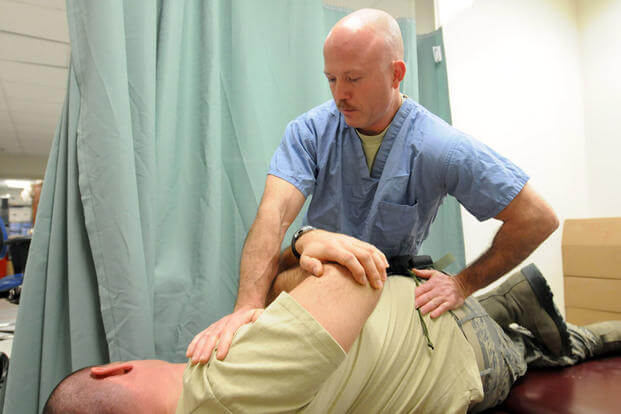The Alamo, Part 2: The Texas Medical Association
Continues to Suppress Chiropractic
SOURCE: Texas Medicine ~ May 2015
By Kara Nuzback
Edited from their article:
The Affordable Care Act promotes collaboration and team treatment of patients. The Texas Medical Association agrees collaborative care is crucial, but the association wants to ensure physicians remain the head of the team. With the Texas Legislature in full swing, physicians face several bills that would challenge that leadership and expand the scope of practice for nurses, chiropractors, and other health professionals without a license to practice medicine.
Fort Worth pediatrician Gary Floyd, MD, says he started testifying before the legislature in defense of patients in the 1990s. Every session, a similar onslaught of bills arises from nonphysician practitioners aiming to expand their scope of practice.
“A lot of them are reaching beyond what they’ve been educated and trained to do, and beyond what their skill sets allow them to do,” he said. “That puts patients in danger.”
These medical professionals also put their own licenses at risk, he says. “When you over-reach, you get in trouble,” he added.
Dr. Floyd does not downplay the need for nurses and other midlevel professionals, but he emphasizes the importance of physician supervision. “They are part of a physician-led health care team,” he said. “We strongly believe that is the best model for delivering care.”
That roughly translates into: They can only do what WE permit, and no more!
This section is quite revealing:
Chiropractors:
TMA has gone up to bat against the Texas Board of Chiropractic Examiners (TBCE) in the past to fight rule changes that would expand chiropractors’ scope.
In 2006, TMA took TBCE to court to invalidate the board’s adoption of rules that would have allowed chiropractors to make diagnoses and perform needle electromyography (EMG) and spinal manipulation under anesthesia (MUA). In 2012, an appellate court invalidated TBCE’s rules allowing EMG and MUA, but it said it had no jurisdiction to consider the diagnosis rule. TMA appealed the diagnosis decision to the Texas Supreme Court the same year, but in 2013, the high court decided not to hear the case. The issue of chiropractors diagnosing medical conditions is not yet resolved.
In 2010, TMA filed another lawsuit against TBCE challenging a rule that would have allowed chiropractors to perform vestibular-ocular-reflex (VOR) testing. TMA said VOR testing exceeds the statutory scope of chiropractic regardless of any additional training and education requirements imposed by TBCE. As of March, this case was still working its way through Texas courts.
Three bills before the 2015 Texas Legislature would expand chiropractors’ ability to diagnose patients.
House Bill 126 by Rep. Allen Fletcher (R-Cypress) would allow chiropractors to give patients access to handicap parking placards. Austin neurologist Sara Austin, MD, a member of TMA’s Council on Legislation, testified March 10 before the House Transportation Subcommittee against HB 126.
In her testimony, Dr. Austin notes the stringent requirements for handicap parking placard eligibility in the Texas Transportation Code, which stipulates a patient must:
- Be unable to walk 200 feet without stopping to rest;
- Be unable to walk without the assistance of a brace, cane, crutch, wheelchair, prosthetic, or another person;
- Be restricted by lung disease, a cardiac condition, an arthritic condition, a neurological condition, or an orthopedic condition;
- Have a foot disorder; or
- Must have another debilitating condition that, according to a physician, impairs their ability to walk.
“Mr. Chairman and members, virtually all of these requirements specified in the Transportation Code require a medical diagnosis,” she said.
In contrast, Dr. Austin says, the Texas Occupations Code authorizes chiropractors to analyze, examine, or evaluate the biomechanical condition of the spine and musculoskeletal system.
“We believe chiropractors have neither the breadth of education nor the training necessary to make these critical evaluations. A plain reading of their scope of practice leads us to believe that making such determinations does not fall within the statutory definition of their profession,” Dr. Austin said.
House Bill 1174 by Representative Fletcher would allow chiropractors to conduct physical examinations for school bus drivers. Dr. Floyd said, “It’s the same as conducting a physical exam for a kiddo’s pre-sports physical.”
Chiropractors are not trained to listen to the heart or perform all the components of a physical exam, he says. “It would put patients, we think, at risk,” he said.
Likewise, House Bill 1231 by Representative Fletcher would allow chiropractors to examine student athletes for concussions. Dr. Floyd says chiropractors are trained only to examine joints, the back, and the neck; diagnosing a concussion is beyond their abilities.
TMA supports House Bill 3189 and Senate Bill 213, which came out of the Sunset Advisory Commission review process and concern the University Interscholastic League. If passed, the legislation would force student athletes to obtain preparticipation physicals from only physicians, PAs, or APRNs. Current statute allows chiropractors to conduct sports physicals for students.
Houston neurologist Kim Monday, MD, testified in favor of the legislation in July 2014. Dr. Monday told the Sunset Advisory Commission that chiropractors lack the training to provide a comprehensive physical exam that includes cardiovascular and neurologic systems.
“Physicians have the training and expertise to lead the exam, which may be the athlete’s only encounter with the health care system,” she said.




Leave A Comment